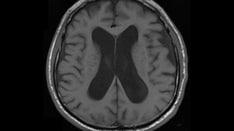The American Academy of Physical Medicine and Rehabilitation (AAPM&R) has issued new consensus guidance on the assessment and treatment of neurologic sequelae in patients with long COVID, also known as post-acute sequelae of SARS-CoV-2 infection (PASC).
The new recommendations, which were published online May 16 in Physical Medicine & Rehabilitation, are the result of a collaboration between experts from a variety of medical specialties at 41 long COVID clinics across the US.
Because physical medicine specialists treat individuals with disability and functional impairments, the AAPM&R was among the first organizations to initiate guidance for the assessment and treatment of long COVID and issued its first consensus statement that addressed long COVID-related fatigue in 2021.
Even though the number of COVID cases and hospitalizations has declined from the peak, long COVID continues to be a major public health issue, Steven Flanagan, MD, AAPM&R president-elect and Howard A. Rusk professor of rehabilitation medicine at NYU Grossman School of Medicine, New York City, told reporters attending a press briefing.
"There is some evidence that some of the antivirals may actually help reduce the incidence but not everybody gets them," said Flanagan, in a briefing with reporters. "In our own clinic here, we continue to see many, many people with problems associated with long COVID," he added.
According to the consensus guidelines, about 80% of patients hospitalized with acute COVID-19 have neurological symptoms. But these symptoms are not just limited to people who had severe illness, said Leslie Rydberg, MD, co-author of the neurology long COVID guidance statement.
"What we know is that many people with mild or moderate COVID infection end up with neurologic sequelae that last longer than 4 weeks," said Rydberg, the Henry and Monika Betts medical student education chair and assistant residency program director at Shirley Ryan AbilityLab, Chicago, Illinois.
Rydberg added that patients who have symptoms for longer than a month after the initial infection should be evaluated. Although the definition of what constitutes PASC is evolving, the guidance states that the literature indicates that it should be defined as the persistence of symptoms 4 weeks beyond the initial infection.
The most common neurological symptoms are headache, weakness, muscular pain, nerve pain, tremors, peripheral nerve issues, sleep issues, and cognitive effects, Rydberg told reporters.
She added that "identifying patients with progressive or ominous 'red flag' neurological symptoms is essential for emergent triaging."
Among the red flags are sudden or progressive weakness or sudden or progressive sensory changes, because those could indicate an acute neurologic condition — either due to long COVID or other illnesses — such as a stroke or a problem with the spinal cord, Guillain-Barre syndrome, or myopathy.
While those signs and symptoms would likely be flagged by most clinicians, some of the emergent or urgent signs — such as upper motor neuron changes on physical exam — are more subtle, said Rydberg.
The new guidance spells out steps for initial evaluation, including identification of red flag symptoms, and also provides treatment recommendations.
Experts also recommend clinicians do the following:
Treat underlying medical conditions such as pain, psychiatric, cardiovascular, respiratory, and other conditions that may be contributing to neurologic symptoms.
Consider polypharmacy reduction, looking especially closely at medications with a known impact on neurologic symptoms.
Urge patients to get regular physical activity, as tolerated, while avoiding overuse syndrome.
Work with physical, occupational, and speech therapists to increase function and independence.
Refer patients to counseling and community resources for risk factor modification.
The treatment recommendations are more in-depth for specific long-COVID conditions including headache, cranial neuropathies, sleep disturbances, and neuropathies.
The guidance also includes a special statement on the importance of ensuring equitable access to care. Underserved, marginalized, and socioeconomically disadvantaged communities had notably higher rates of infection, hospitalization, and death with less access to rehabilitation services before the pandemic, said Monica Verduzco-Gutierrez, MD, chair of the Department of Rehabilitation Medicine at the Long School of Medicine at UT Health San Antonio and a guideline co-author.
"We know that these communities have been historically underserved, that there's already access issues, and that they're disproportionately impacted by the pandemic," said Verduzco-Gutierrez. "This continues as patients develop PASC, or long COVID," she said, adding that these individuals are still less likely to receive rehabilitation services. "This can lead to poorer outcomes and widened disparities."
The AAPM&R PASC Multi-Disciplinary Collaborative has previously issued consensus guidance on fatigue, breathing discomfort and respiratory distress, cognitive symptoms, cardiovascular complications, pediatrics, and autonomic dysfunction, and will be publishing guidance on mental health soon.
The collaborative is also putting together a compilation of all the guidance — "a 'greatest hits' if you like," said Verduzco-Gutierrez.
For clinicians who are unaccustomed to caring for patients with long COVID, the hope is that this new guidance will help them manage the condition, Rydberg said.
The guidance was written with the support of the AAPM&R. Melamed, Verduzco-Gutierrez, and Silver have disclosed grants, contracts, or honoraria from various funding sources, some paid to their institutions and some personal reimbursement for activities related to PASC and broader areas of research and expertise. However, none of the authors have any conflicts relative to the work on the guidance.
Alicia Ault is a St. Petersburg, Florida-based freelance journalist whose work has appeared in publications including JAMA and Smithsonian.com. You can find her on Twitter @aliciaault.
For more Medscape Neurology news, join us on Facebook and Twitter.
Credits:
Lead Image: iStock/Getty Images
Medscape Medical News © 2023
Send news tips to news@medscape.net.
Cite this: Alicia Ault. New Guidance on Neurological Complications of Long-COVID - Medscape - May 18, 2023.









Comments